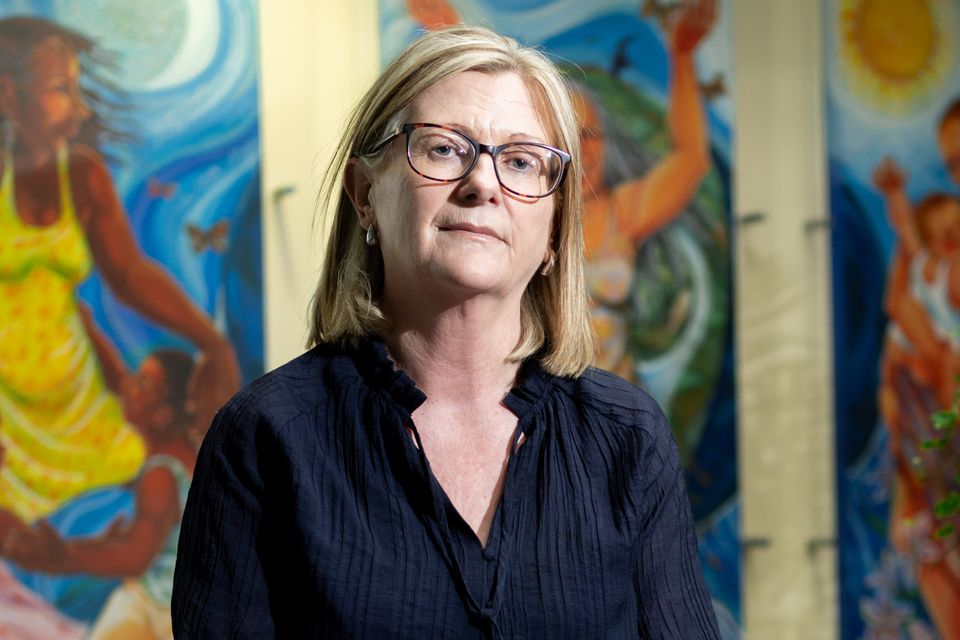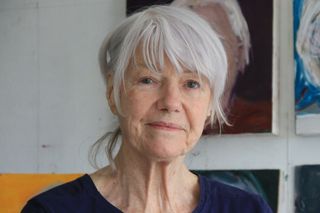Domestic violence victims being forced into homelessness – or back to their abuser
Lack of accommodation heaping pressure on services across country
Denise Dunne, director of services at the Adapt refuge in Limerick city. Photo: Don Moloney
Domestic violence victims are being forced either into homelessness or back into abusive relationships because the housing crisis is leaving women and children who flee with “simply nowhere” to go.
A number of domestic abuse refuges across Ireland have reported cases where victims were forced to stay in refuges for over a year, due to a lack of affordable accommodation for them and their children.
Previously, survivors might have stayed in refuge accommodation for only six to eight weeks.
Refuges say women and children are being put in “extreme” danger, because some survivors are choosing to go back to their abusive partners rather than make their children homeless.
Today's News in 90 Seconds - April 24th
At the moment, Ireland has no dedicated refuge services for male victims.
While Ireland’s frontline domestic violence services tend to prefer to try to remove the perpetrator from the family home, in many cases this is not possible – either because a woman does not reach the threshold to get a barring order, or because she does not feel that it is safe to try to get one.
In many cases, women show up at domestic abuse refuges in crisis situations where they are at risk.
Seven domestic violence services across the country said they were seeing situations where women were forced to stay in emergency accommodation for far longer, because they have nowhere else to go.
The West Cork Women’s Project said housing had emerged as one of the biggest issues for domestic violence services. It said it was concerned that refuges were effectively “warehousing” survivors who were left with nowhere to go, which also had a knock-on effect on the space available in refuges.
In Donegal, Marie Hainsworth of the Donegal Domestic Violence Service said the housing crisis had emerged as a major problem for women and children fleeing an abusive home.
“We’ve consistently had clients who have been living in refuge accommodation for more than a year, initially only supposed to be three months,” she said.
“It’s a major issue. I have known of women who have moved out of a refuge, moved into private rented accommodation, and then said, ‘I’m actually going to go back [to their former partner] for financial reasons’.
“They might have chosen to get out of the abusive relationship but their only option is to go back, because, practically, they can’t cope. They don’t want to make their children homeless.”
Ms Hainsworth said that, in many cases, the family home the woman had fled could be private rented accommodation. “So you are at the whim of the landlord. Sometimes they might say, ‘This is too chaotic, neither of you are having the property’,” she said.
Read more
“The landlord tells the RTB that he’s selling the property, and rents it to someone else. Other times, the perpetrator is the one who is earning the money so he is the ‘reliable’ renter and he gets to stay there.”
Domestic abuse survivors are then reliant on social housing, which can be subject to long waits. Ms Hainsworth said some of her clients had been moved up the social housing list by local authorities, but “it’s very slow. You’re moving people up a list that is going nowhere.”
Denise Dunne is the director of services at the Adapt refuge in Limerick, – one of the biggest such services in the country. She said that move-on accommodation for women who are ready to leave refuges was “very difficult to get”.
While survivors would have previously moved on to renting, “the private rented accommodation market has dried up completely”.
She said her service was seeing women with communities in the city being forced into more rural areas, possibly farther from their support networks.
“A couple of years ago, the semi-solution was to go on the local authority housing list. Survivors would present, and be placed in a family hub. But what’s happening is the family hubs are full,” Ms Dunne said.
This was leading to women being stranded in refuges for “well over a year”.
Ms Dunne said survivors were now being moved out of refuges into hotels by local authorities scrambling to find housing for them.
“Women are being moved from pillar to post – and it’s unfair, because at the end of the day the abuser is sitting in the house,” she said.
Catherine McCurdy, the director of operations with Wexford Women’s Refuge, said it also tried wherever possible to keep women in the family home and to remove the perpetrator in abusive situations. But its refuge, like all others across the country, is still experiencing high demand from women in crisis.
“Housing is a huge issue, especially for women who share a mortgage with someone,” she said.
Ms McCurdy said her service also had a good relationship with its local authority, which was trying its best to accommodate women and children but was struggling with the ongoing housing crisis.
While she praised the Government’s new state agency Cuan, which is trying to increase refuge provision across the country, she said “there was not a refuge in Ireland” that wasn’t heavily reliant on the generosity of local donors.
Lisa Morris, the manager of Amber Women’s Refuge in Kilkenny, said it was experiencing a “huge issue” in Kilkenny and Carlow “in terms of availability of move-on accommodation options for women and children post-refuge”.
“We typically have a three-month length of stay period at Amber but like other services, we too have had to extend this with almost all of our clients in recent times, as there was just simply nowhere for women and children to go after refuge,” she said.
“We work closely with Kilkenny and Carlow local authorities to seek solutions, but solutions are not always there due to lack of stock in the private rented market. Some women will end up returning home to the perpetrator as the stress of seeking alternate accommodation is too much. This is leaving women and children in extremely dangerous situations.”
Like all of the frontline services to whom we spoke, Ms Morris said the Government needed to prioritise creating safe pathways out of abusive situations.
Inchicore Outreach is a community organisation that supports abuse survivors but does not run its own refuge.
“We have had a number of phone calls from women saying they have to leave the refuge and present as homeless – this, I believe, is a direct result of having no housing or other limited options available,” Anita Koppenhofer, of Inchicore Outreach, said.
“I believe this puts these women at further risk of being accessible to abusive men, and I know it leaves some women no choice but to return to the family home, which now gives a perpetrator more power and control over their lives.”
Clare Haven Services said the lack of housing accommodation was directly affecting its work. It said refuges were “not homes”, and that women and children were at risk of becoming institutionalised from living in refuges long-term.
Anyone who needs help can call Women’s Aid national helpline on 1800 341 900
Helplines: If you have been affected by any of the issues raised in this article, click here for more information
Join the Irish Independent WhatsApp channel
Stay up to date with all the latest news















